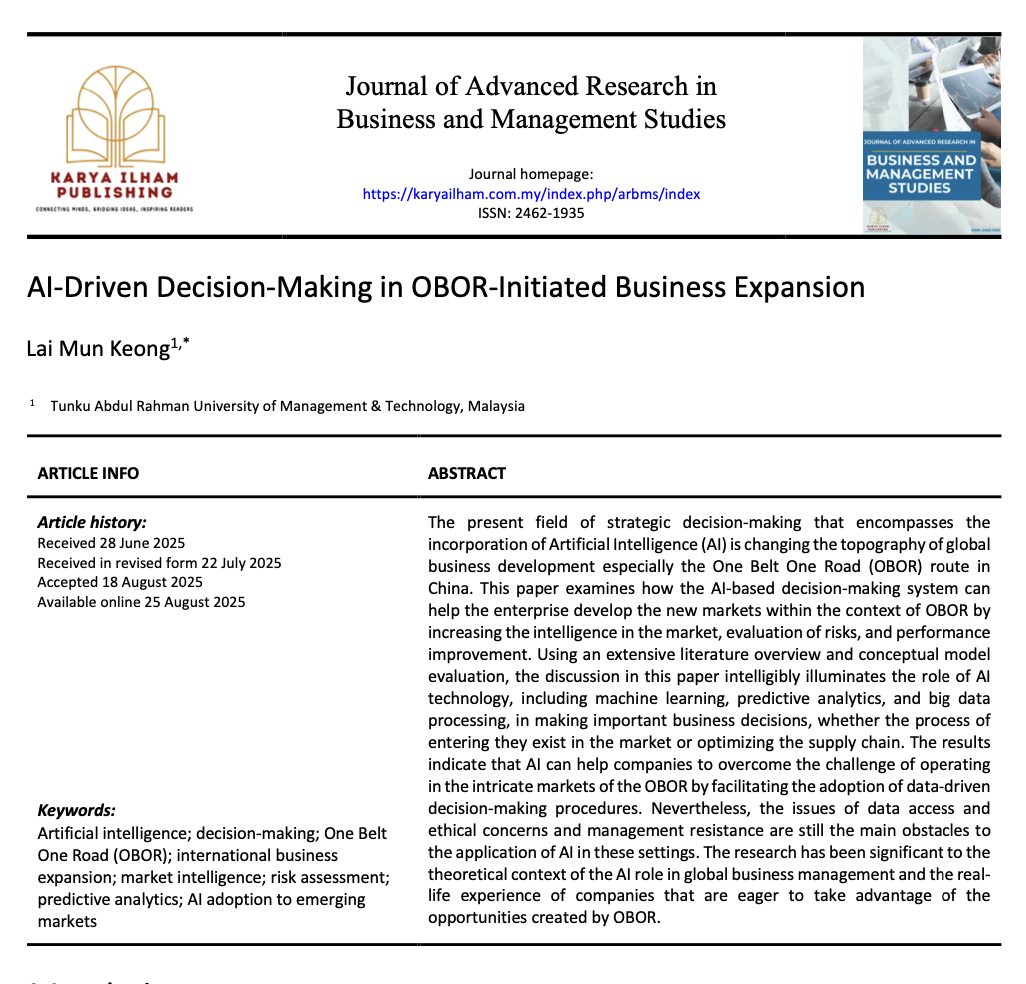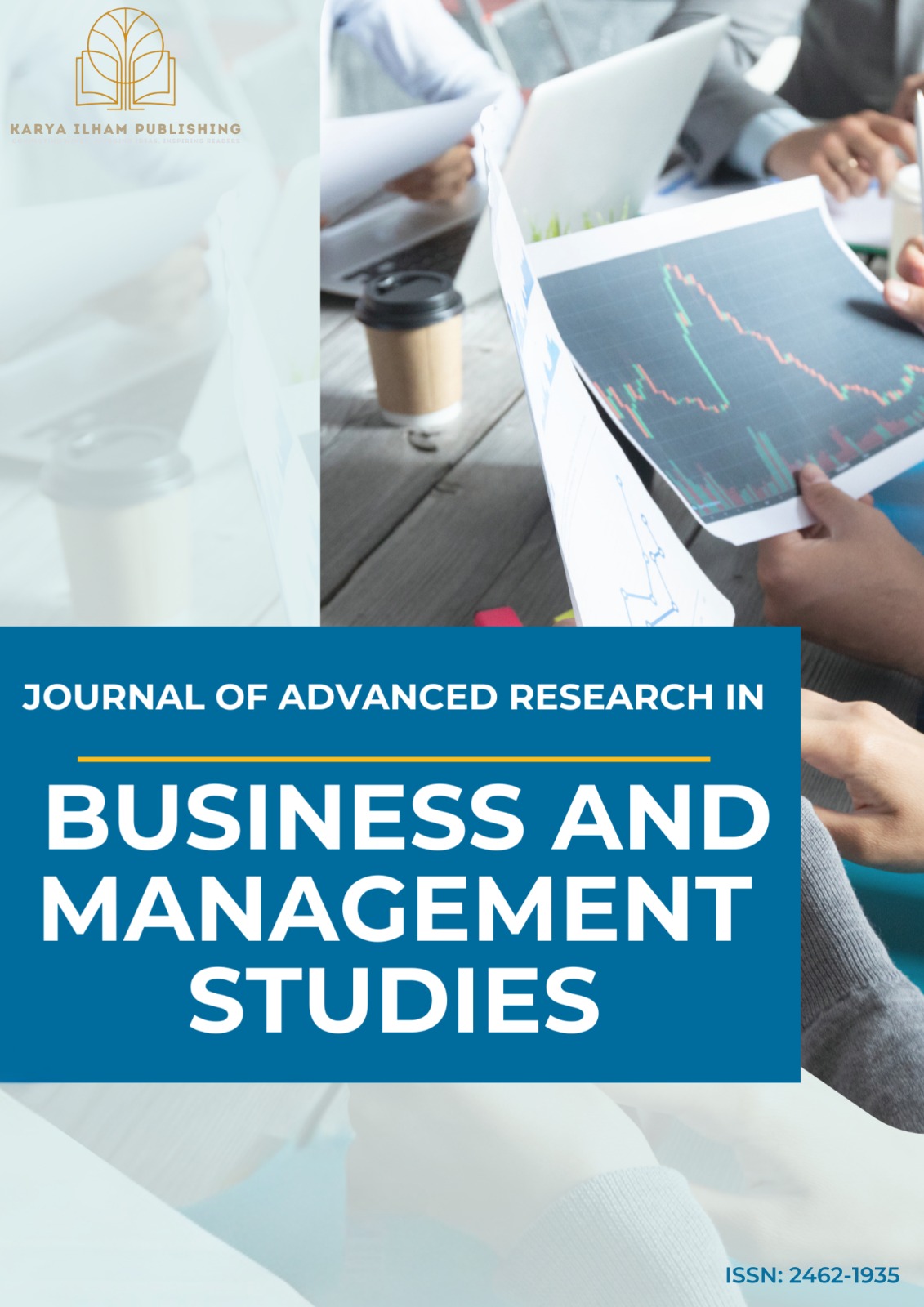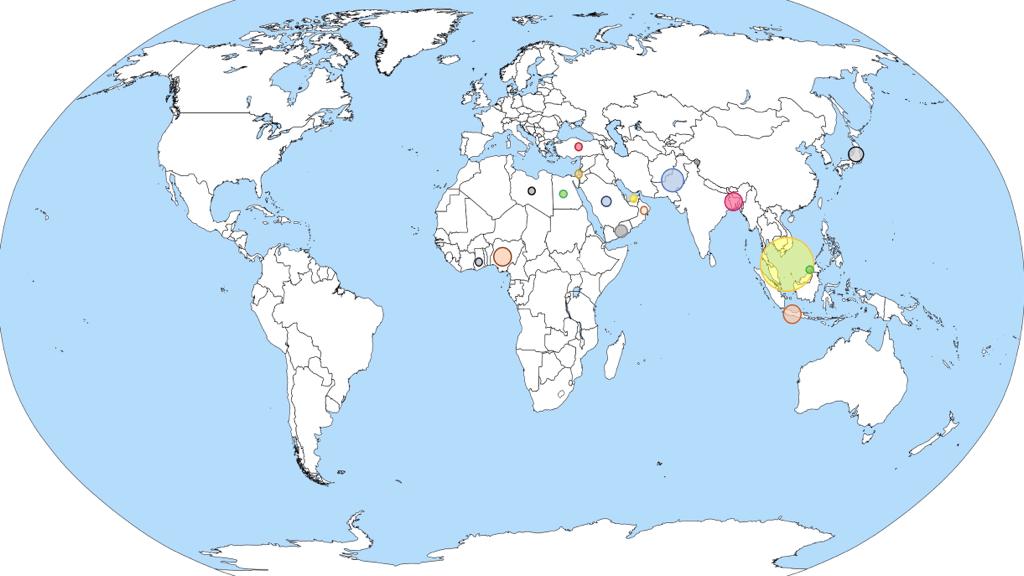AI-Driven Decision-Making in OBOR-Initiated Business Expansion
DOI:
https://doi.org/10.37934/arbms.39.1.173183Keywords:
Artificial intelligence, decision-making, One Belt One Road (OBOR), international business expansion, market intelligence, risk assessment, predictive analytics, AI adoption to emerging marketsAbstract
The present field of strategic decision-making that encompasses the incorporation of Artificial Intelligence (AI) is changing the topography of global business development especially the One Belt One Road (OBOR) route in China. This paper examines how the AI-based decision-making system can help the enterprise develop the new markets within the context of OBOR by increasing the intelligence in the market, evaluation of risks, and performance improvement. Using an extensive literature overview and conceptual model evaluation, the discussion in this paper intelligibly illuminates the role of AI technology, including machine learning, predictive analytics, and big data processing, in making important business decisions, whether the process of entering they exist in the market or optimizing the supply chain. The results indicate that AI can help companies to overcome the challenge of operating in the intricate markets of the OBOR by facilitating the adoption of data-driven decision-making procedures. Nevertheless, the issues of data access and ethical concerns and management resistance are still the main obstacles to the application of AI in these settings. The research has been significant to the theoretical context of the AI role in global business management and the real-life experience of companies that are eager to take advantage of the opportunities created by OBOR.

















